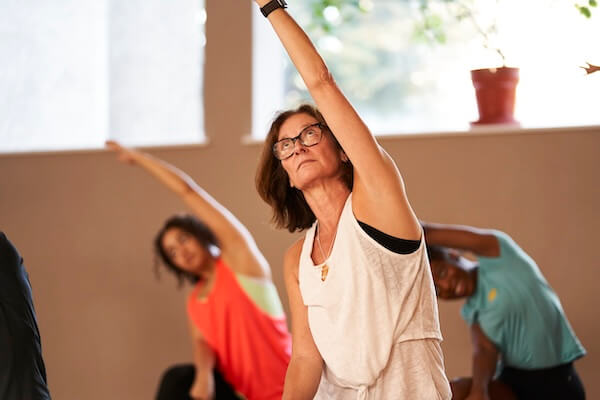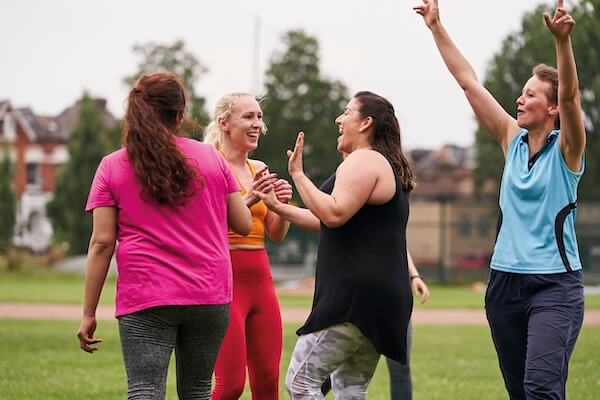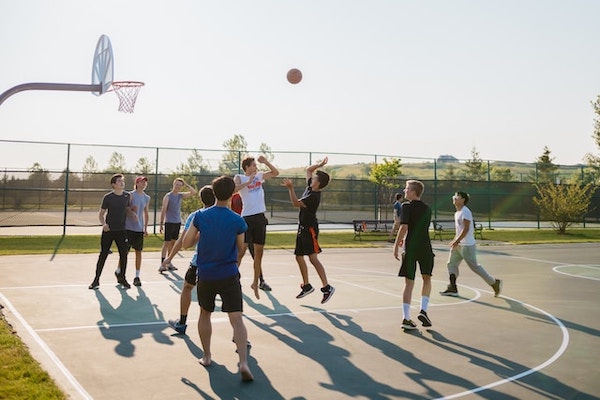
For some, exercise is just too difficult to fit into their
schedules. Between work commitments, family obligations, and other
social engagements, there just doesn’t seem to be enough time in
the day for something that feels like a chore. For others,
exercise becomes more of an obligation than a hobby. If you find
yourself in either category, then these five tips can help you get
back into a healthy routine.
Find a friend or Join a group

Having a workout buddy can provide accountability and encouragement, as you can motivate each other to stay on track and reach your fitness goals. Exercising with a friend can also make the experience more enjoyable, as you can chat and have fun together while you exercise.
If you don't have a friend who is interested in exercising with
you, you can consider joining a group fitness class
or team sport. Many
gyms and community centers offer a wide range of group fitness
classes, such as yoga, spin, or Zumba, which can be a fun and
social way to get in shape. Participating in a team sport, such as
basketball or soccer, can also provide a sense of camaraderie and
competition that can help keep you motivated.
In addition to providing motivation and support, exercising with a friend or group can also help to break up the monotony of solo workouts. It can be easy to lose interest in exercise if you are doing the same routine day after day, but exercising with others can help to keep things fresh and exciting.
Overall, finding a friend or joining a group to exercise with can be a powerful way to get back into the habit of regular exercise. Not only will you have someone to motivate and support you, but you'll also have more fun and variety in your workouts. So don't hesitate to reach out to a friend or join a group – it could make all the difference in your fitness journey.
Make exercise a non-negotiable part of your day
It can be easy to postpone an exercise routine that you don’t feel like doing. Here are some ways that a regular exercise routine can help:
-
Provides structure and consistency: When you have a regular exercise routine, you know exactly when and how you will be exercising each week. This can make it easier to plan your schedule and stick to your fitness goals.
-
Increases motivation: When you see progress in your fitness level, it can be a powerful motivator to continue exercising. By establishing a regular routine, you can track your progress and see how far you have come, which can provide the motivation you need to keep going.
-
Reduces stress and improves mental health: Exercise has been shown to reduce stress and improve mental health, and a regular exercise routine can provide a sense of accomplishment and contribute to overall well-being.
-
Increases energy and improves sleep: Regular exercise can increase energy levels and improve sleep quality, making it easier to get through the day and feel rested.
- Block the time: To establish a regular exercise routine, try to set aside a specific time each day or week for exercise, and choose activities that you enjoy.
It can also be helpful to vary your workouts to prevent boredom, and to set realistic goals for yourself.
Remember that it's okay to start small and gradually
increase the frequency and intensity of your workouts as you
become more comfortable. The important thing is to find an
exercise routine that works for you and stick with it. With
time and consistency, you'll be back into the habit of
regular exercise in no time.
Find an activity that you enjoy doing
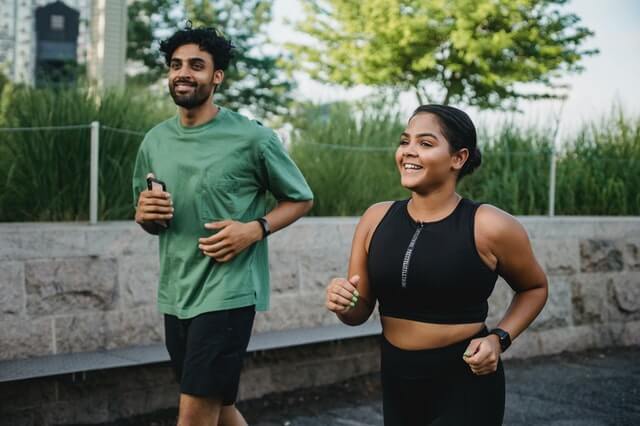
Not everyone enjoys running or lifting weights. Rather, they enjoy taking yoga classes or playing tennis. Finding an activity you like is key to sticking with an exercise routine. By finding an activity that you enjoy doing, you can increase your chances of sticking with an exercise routine and reaping the numerous benefits of regular physical activity.
One of the key benefits of finding an activity that you enjoy is that it can make exercise feel less like a chore and more like a hobby. When you look forward to your workouts and have fun while doing them, you are more likely to make them a consistent part of your routine. This can help you stay motivated and avoid feeling burnt out or discouraged.
There are many different types of activities that you can choose from, so it is important to take the time to explore and find what works best for you. Some people enjoy team sports, such as basketball or soccer, while others prefer solo activities, like running or cycling. Some people enjoy high-intensity workouts, while others prefer low-impact activities, such as yoga or swimming. The key is to find an activity that you enjoy and that fits your personality and fitness level.
Another advantage of finding an activity that you enjoy is that it can help you stay motivated to improve. When you are doing something you love, you are more likely to push yourself to get better and achieve your goals. This can help you stay committed to your fitness routine and make progress over time.
If you don’t like what you’re doing, it will be hard to stay motivated over the long run. It can be hard to find an exercise routine that suits your needs and tastes, but it’s worth the effort. You want to find something that makes you excited to work out so that you have a better chance of sticking with it in the long term.Don’t make excuses
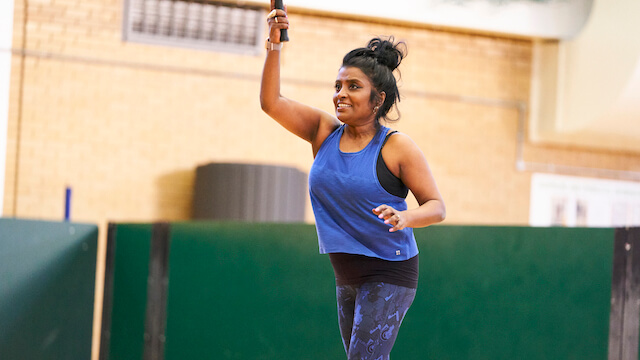
One of the easiest ways to get out of a routine is to make excuses. We all know that a good workout routine is important for a healthy lifestyle, but sometimes we find ourselves coming up with reasons why we can’t get one in. Whether it’s because you have kids or too many responsibilities, there are always reasons not to exercise.
But really, there are no excuses. If you want to get back into a
regular fitness routine, then you have to stick with it. Even if
it means going for a run after dropping your kids off at school or
doing yoga on Saturday mornings before you go out with friends,
there needs to be some sort of set time and place where you
exercise each day.
Another way is to try and incorporate small changes that lead to
increased activity during your day. This could be taking stairs
instead of the lift or walking to the next bust stop while you
wait for the bus to arrive.
You owe it to yourself and your future self to make the necessary changes now so that things will be easier down the line.
Got a tip or story to share
Do you have a great tip or a story to inspire others? Join the KeepActive Facebook group or tag us on Instagram or Facebook to share your tips or story. There are a lot of people unsure about starting their fitness journey or meeting strangers, seeing stories and photos from other people can inspire others to take their first step.



